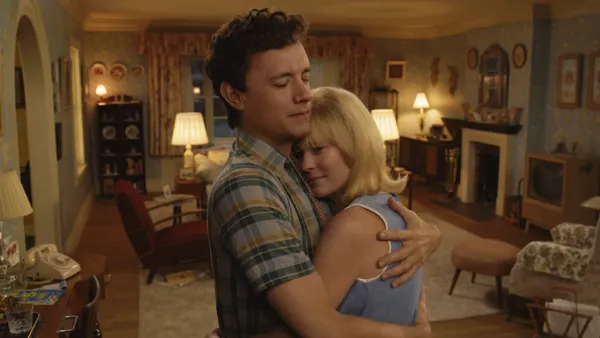MARRIAGE STORY
I didn’t enjoy this film.
That doesn’t mean it’s not well made. By all accounts it is. The acting by everyone involved could easily be called career best work. The writing, while theatrical, never falls into the pitfalls of over-explaining or undermining its audience. The methodical directing by Noah Baumbach elegantly moves between scenes in a way that never gets in the way of the story. On a technical level I cannot fault this film for anything.
But this is an extremely emotionally taxing movie. It buries itself in a hugely personal and detailed depiction of a marriage falling apart, and there’s little chance for the viewer to gasp for air in between breathless fights with the two leads. Over and over again we’re forced into scenarios of their own making, where any reason has been tossed into the wind ages ago. There’s only anger, resentment, and a desire to wound. If Eli Roth popularized mainstream torture porn in the west, surely it is MARRIAGE STORY that now does the same for the emotional version of this. Realistic or not, by the final explosion of verbal abuse I was ready to check out and never return.
Charlie and Nicole are married and have an eight-year-old son. Nicole moved away from Los Angeles to support Charlie in New York, abandoning her career in film for his in theater. Now, years later, she returns to Los Angeles with their son, provoking the beginning of their marital downfall. Nicole hires a lawyer, to whom she confides in, opening up about her emotional trauma in a combative and suffocating relationship. Whatever has happened between her and Charlie, it has festered so that there is no salvaging this relationship.
The opening of the film asks for both leads to read lists about why they fell in love with their significant other in the first place. It’s like throwing a life preserver into a tsunami. Charlie reads his, Nicole refuses. His list doesn’t read like a real one, and more like a press release. In each of his actions, Charlie dictates a life he believes should be happening instead of what is actually before him. The real tragedy is that the film never broaches the idea that Charlie might be wrong in all this. His failures are there to serve as tragedy, not reflection, and there’s a genuine sense that the film wants us to believe that if there was a wronged party in all this, it would be him.
In one of the saddest and most heartbreaking moments in the film, Nicole bares her pain in how steamrolled her life was by their marriage, and her family encourages her to patch things up. The conversations between Nicole and her lawyer are framed like machinations of the villain. Nicole might be asked to receive our sympathy, but the storytelling is clearly not on her side. The film might act like it doesn’t believe in sides, that both are equal experiences in the matter, but by measures both subtle and obvious, Baumbach signals that whatever happened to inspire the film, he isn’t over it just yet.
It’s an odd film to criticize. After all, this is an expensive therapy session funded by Netflix. Written by Baumbach as he himself was going through divorce, MARRIAGE STORY is hard to separate from reality. There isn’t a single scene where I didn’t consider the obvious: Who is who in this depiction? How much of this happened, and how uncomfortable is this for friends and family to watch?
And more importantly, why would I want to watch it? It has the air of walking in on a private argument that is getting louder by the minute, and instead of letting the people involved have the grace and dignity to deal with it themselves, we would grab a chair and popcorn to help us admire the spectacle of human emotion.
There must be value to seeing these things. It might even give catharsis to others to see the most nightmarish version of a divorce on screen. But not for me. While I know logically that people can be, and are, vile and horrible to each other on a daily basis, I could not wrap my head around why I would want to spend two hours with anyone who openly wishes death on their soon to be former spouse. Especially when the story clearly, desperately wants us to feel empathy for these people afterwards. A violent, both physically and verbally abusive, fight ends in a pietà. No matter how horrible, how repugnant the actions, the filmmaker would have us believe that Love Conquers All. Or, at the very least, love will forgive the husband all his trespasses.
It’s the kind of film that is fun for actors to play. The emotions are big and the parts are showy. And both Adam Driver and Scarlett Johansson, two of the finest actors of their generation, are perfect in their parts. I fully believe their pain on the screen. Laura Dern shows up in a fantastic role that reminds us, as if that was required, what a unique and brilliant actor she is. Comedy queen Julie Hagerty is divine, and Ray Liotta makes a welcome return to parts actually worthy of his talents.
But all of it is in service of an exercise that I didn’t care for. I don’t see myself returning to MARRIAGE STORY in the future. It’s not a film you pop in to relax, and it’s not the kind of film I’d watch to learn something about the world. I felt like a voyeuristic leech watching the film.
Maybe that’s the point.



